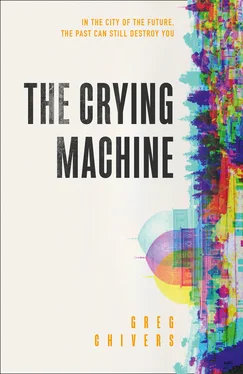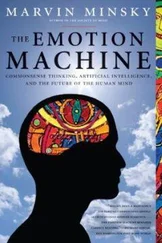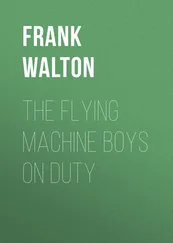‘We want you to bring forward delivery of the device.’
The feeding tube gives the poor thing a lisp. Manners dictate Silas endeavour to look it in the eye. The oval face is pale and veined from tissue rejection and the steady diet of immunosuppressants taken to counter the body’s response to contamination by metal limbs and digits. The reality of cheap, backstreet augmentation is something the Cult doesn’t show to potential recruits, but progression depends on physical demonstrations of commitment, and the faith doesn’t pay for new arms for the rank and file. If they survive to reach middle management, they all look like this one, give or take a tube. It won’t have long left in its current form; it’ll either ‘ascend’ and be admitted to the factory-labs of Europe by its masters, where they’ll remove the last vestiges of human flesh and graft its electronically preserved consciousness into a bio-engineered form within an exoskeleton of shining metal, or it will die of something resembling AIDS. The Machines who inspire this worship are an abomination, a wrong turn humanity might have avoided in a better world, but their power is more real than any god’s, and their ersatz faith certainly incentivizes the workers.
Silas shrugs. ‘You know the schedule we’re on. The job entails expenses. If you want me to stick to the dates, I need you to cover my operating costs.’
‘It is yours. You should take it and give it to us.’
‘We’ve discussed this. The Antikythera Mechanism is not mine, it belongs to the city.’
‘But you could take it. Give it to us now. We will pay you more.’
This is where difficulties arise. The Machine Cult are decidedly less than human when it comes to acknowledging such minutiae of existence as holding down a job. You could view that as evidence of the changes their body-modification has wrought upon their minds, although Silas rather suspects they haven’t changed at all – the people who inflict this upon themselves are the ones who couldn’t cope with all the messy uncertainties real life entails. The extinction of flesh reduces the uncomfortable variables of self, but the external world is harder to control. Reality is stubborn and unforgiving, and today Silas is its avatar.
‘Please, there is a schedule. Deviating from it will bring trouble none of us want.’
The taller, healthier one in the middle of the trio pipes up. ‘Another two million. Bring it to us tomorrow.’ The end of the last word disappears in a wet gurgle. They are not flexible thinkers – they struggle to let go of an idea once they’ve latched onto it. The mistake would be to think they are stupid. The one at the back, not talking, is doing a reasonably surreptitious survey of the security arrangements. The slow, lateral turns of his head suggest he has some sort of scanning augmentation built in around his eyes, perhaps even total replacements. If they’ve received surveillance technology from their patrons in the West, any locally available counter-measure will be useless.
‘I have removed the Antikythera device from public display as a precursor to our enterprise, but it is not on these premises. If you wish to withdraw from the arrangement previously agreed …’ Silas stresses the word any sane human being would recognize as significant. ‘… you should feel free to make your own arrangements. After all, no money has changed hands. I feel I should add, though, just so you fully understand the parameters within which you must make your decision, that in addition to their standard weaponry, I have equipped the museum’s guards with dart guns capable of delivering a discreet dose of phenobarbital.’
They stare blankly.
‘Really? No? Well, allow me to enlighten you. It’s a remarkably cheap and effective way to negate immunosuppressants.’
The heat from their bodies becomes palpable as nervous energy is reprocessed into something their systems can handle. They remain perfectly still. Without the drugs, their bodies will reject the metal they’ve forced in, attacking it like cancers. It is a grim, painful death, but, more than that, it is an undoing of everything they’ve become – a forced recognition of its artificiality and wrongness. Those darts are existential terror for a shekel a shot.
One of them takes a step forward, his shadow darkening the desk. It is another weakness of the Machine Cult that they overestimate their ability to intimidate. In their infuriating way, the Cultists are a fascinating case study in the gap between the imagined perceptions of others and reality. They imagine they wield the power of their inhuman masters in the West – the unspoken threat of it hangs in the air – but it is bluff. The writ of the great powers does not extend to the Holy City. If it did, Jerusalem would be just another factory, but instead their proxies are ruining the carpet.
‘So, gentlemen, to my expenses: I require five hundred thousand to cover my initial outlays on personnel and equipment, and another five to fund the next stage of the operation. That will suffice until delivery, at which point I’ll have to insist on payment in full prior to handover.’
Their stare is unwavering, but eventually the one at the back speaks. ‘You must be there.’
‘No. My terms of delivery are non-negotiable. The associates I have engaged are quite capable of getting the item to the coast, or any other chosen extraction point. My government commitments do not permit me to leave the city.’
The frustration of it is that he has had this conversation with them before, in various forms. They must have hoped their physical presence would alter its outcome this time, but the truth is that they came here with no leverage. If you were inclined towards sympathy, you might even pity their predicament. They are laying out a huge quantity of money given to them by creatures of utter ruthlessness and unimaginable power. For them, failure in this enterprise carries not just a certainty of death, but a denial of the afterlife they have dedicated their existences to achieving. Like any purchaser, they want to feel they are in control. In a commercial transaction a good salesman will foster the illusion, but this is the point at which criminal enterprise differs – even the appearance of ceding control can be fatal. Silas makes a show of looking at his watch, a usefully pointed anachronism for the present audience.
‘You’ll have to forgive me, I’m afraid I’m going to have to bring this meeting to a close. If you can be sure to have the money wired to my account by close of business today, I will be sure to keep our little operation on schedule.’
Levi’s thin fingers close around the bright fruit as if to test its reality. He pinches the green leaf from its stem and sniffs it before leaning back, apparently satisfied. At the edge of her vision, the other one watches from behind the bar, his face halved in blue chiaroscuro by light from a screen showing some foreign sport. A bank of three refrigerators against the wall hums as freon courses through the tubes of their heat exchangers. One is a semitone deeper than its fellows and rattles faintly at thirty-second intervals. A dripping tap plays counterpoint to the chorus, but otherwise the room is silent.
At a nod from Levi the barman bustles out from behind the counter like a heavily muscled housewife. Clementine hovers, uncertain where to sit, resisting the urge to blink and peer into the room’s darker recesses. A squeal of tortured wood from behind makes her jump as Yusuf slides a splintered wooden bar down between two staples on the door, sealing them all in.
‘Closing early tonight. This is a private conversation.’ His smile summons the memory of yesterday. His kindness had been a chink of light in her despair, but that meant nothing now. These people were criminals; that much was clear.
Читать дальше











